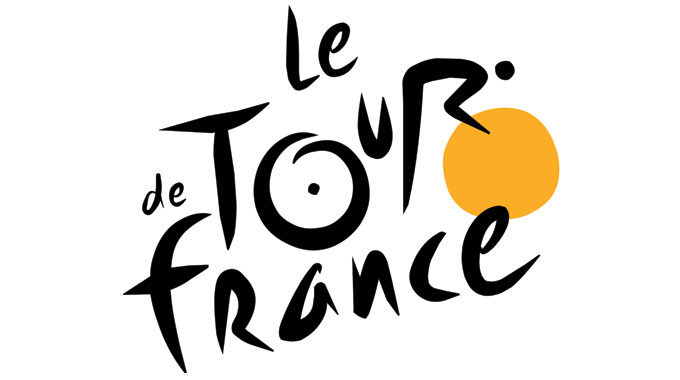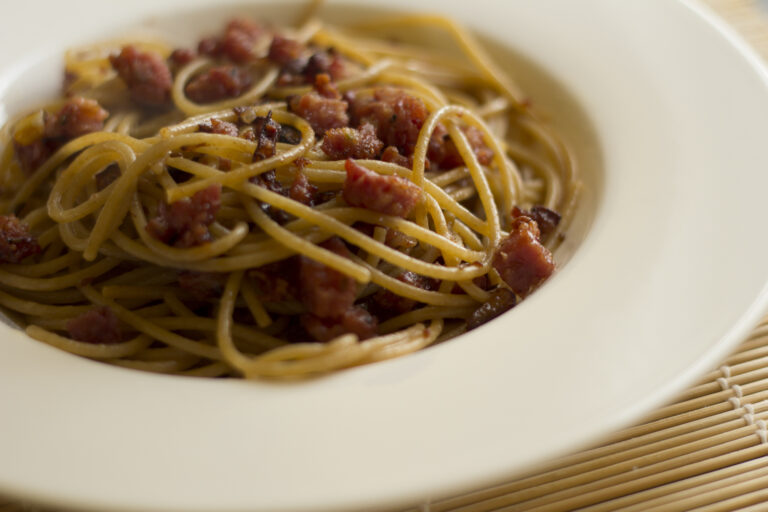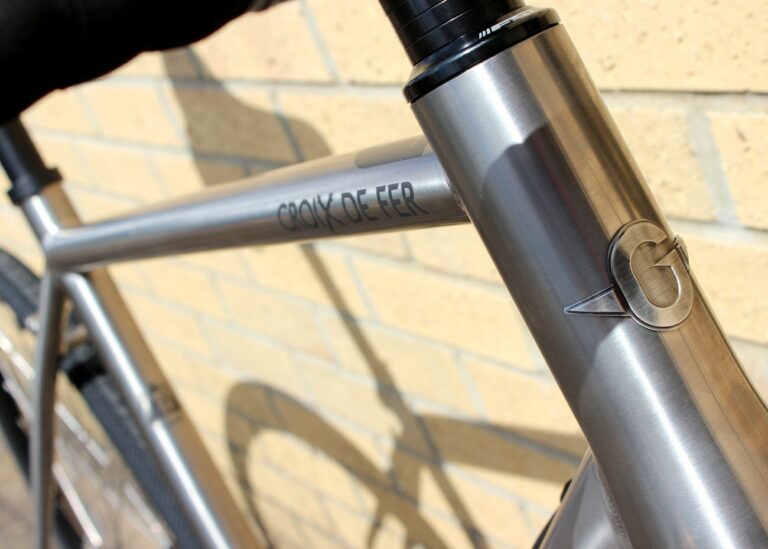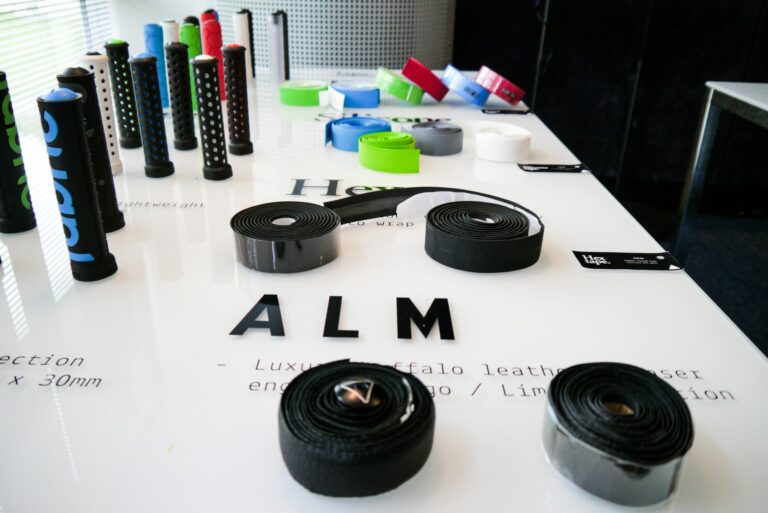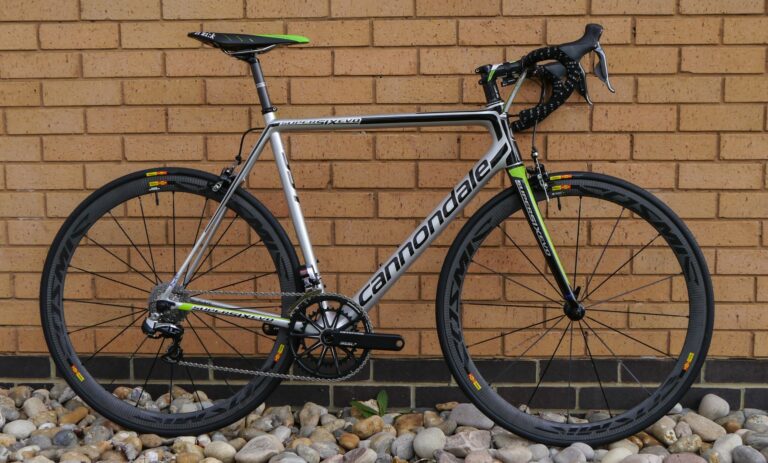When the Tour de France was first held in 1903 it was intended by journalist and self-styled ‘father of the Tour’, Henri Desgrange, as a way to shift more copies of his publication, L’Auto. Circulation of the sports-specific newspaper was dire and Desgrange called a crisis meeting, demanding suggestions from his staff of writers for ways to pep things up.
In that fateful meeting one of L’Auto’s writers, Géo Lefèvre, blurted out the idea for a cycle race around France and the seeds of what is now the world’s biggest annual sporting event were sown. In the early editions Desgrange’s vision for the Tour was very specific, in that he wanted to create a herculean test so grueling that it would produce ‘a perfect winner’ – one single rider who was able to complete the race. For Desgrange, a Tour that produced just one finisher, a super-athlete able to withstand more than any other, would be a ‘perfect Tour’.
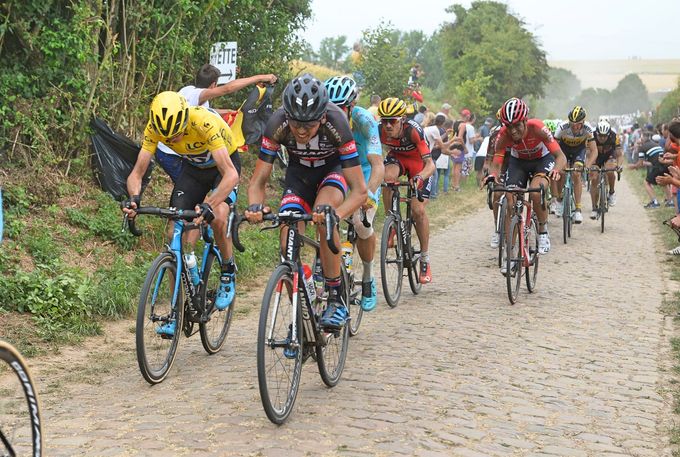
With that goal in mind Desgrange tried to keep things as brutal and unforgiving as possible. He allowed teams to enter, but forbade their members from helping one another; he banned the use of any kind of mechanical derailleur, so the riders had to dismount at the foot of hills and flip their rear wheel into ‘climbing gear’; and he even insisted for years that all wheels should have wooden rather than metal rims. His pursuit for an individual, perfect winner was dogged.
Race technology has certainly come a long way in the intervening 102 editions of le Grand Boucle, but this year we’ve seen some striking reminders of the spirit in which Desgrange conceived the Tour. It is fair to say that director Christian Prudhomme, who took the reigns in 2007, has blessed us with an opening week that has put every weapon in the pro bike rider’s arsenal to the test. There’s been crosswinds, mayhem on the cobbles, uphill finishes, explosive sprints and the dramatic withdrawal of not one, but two, big name yellow jersey-wearers.
Prudhomme himself has described the 2015 starting week as “atypical”, acknowledging that even by recent standards – 2014 saw the withdrawal of Mark Cavendish, Chris Froome and Alberto Contador in the opening stages, while 2013 saw Geraint Thomas ride the whole thing with a broken pelvis sustained in a crash on day one – this was been a tough test for the 198 riders who took to the start line in Utrecht.
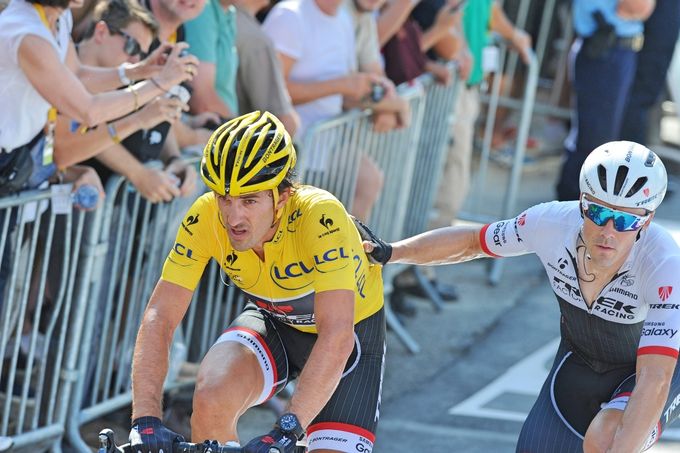
Of the four who have worn the maillot jaune up until the first rest day, two have crashed out of the race; Cancellara after fracturing two vertebrae in a dramatic smash-up on what should have been a routine stretch of road, miles from the decisive Mur de Huy (Cancellara, the warrior that he is, completed the stage before withdrawing overnight), while Tony Martin went down at the business end of stage six, cutting his first ever stint in the yellow jersey short, after a single stage. Like Cancellara, Martin, one of the undoubted hard men of the peloton, finished the stage despite sustaining a compound fracture of his collarbone – and completing the jersey ceremony and TV interviews before visiting the race doctor.
There have been other abandonments, too, Aussie outfit Orica-Greenedge were so beleaguered after the first eight days that they had to take on yesterday’s team time-trial, an event in which they would usually expect to take a podium spot at the very least, with just six of their starting nine riders. They crawled over the line dead last, five minutes off the blistering pace set by BMC who, incidentally, had a full complement. It was the luck of the draw, some will say, but you wouldn’t judge Orica too harshly if they felt a little bit hard done by.
But any rider who has worn the yellow jersey through the first week, or continues to harbor overall ambitions, has done so entirely on merit.

On the re-inclusion of the sectors of pavé that put an end to Froome’s 2014 ambitions and the general difficulty of this first week, Prudhomme said: “The best riders in the world should be good at everything. Back in the day when Hinault or Zoetemelk won the Tour, there was 40km of pavé.”
He has a point.
The latter stages of the 2012 and 2013 Tours were, for anyone not travelling to the start line in a big black bus nicknamed ‘the Death Star’, a bit of a snore fest – mainly because of the dominance Dave Brailsford’s men asserted in the time trials, before defending that advantage in the mountains. Now, with less of a focus on the race of truth, and a parcours suited to more versatile, and above all, robust, riders, we have a real contest on our hands going into the Pyrenees.
Leaving aside the fact that on Sunday, after taking a 12-second lead at the top of GC, current race leader Froome uttered the words, “At this stage it’s for us potentially to be riding more of a defensive race”, the opening days of the 2015 edition have left the race delicately poised.
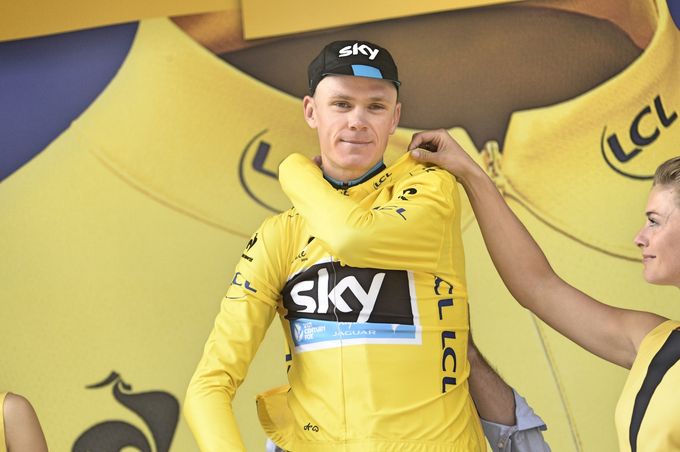
Froome looks like good value for his maillot jaune and seems to be in a more aggressive, combative mindset all round than he has in previous years, but Nairo Quintana, who lost a bit of time to the Zeeland crosswinds, has otherwise picked his way through the pile-ups and floated over the Belgian cobbles with panache and is now poised to attack in the mountains, where he is undoubtedly most at home. Alberto Contador is still playing his cards close to the chest, and while a question mark remains over his form and longevity after his Giro d’Italia win in May, the Spaniard is regarded as the finest Grand Tour rider of his generation for good reason, and is never one to bow out without a fight. Defending champion Vincenzo Nibali is looking the most uncertain of the fab four, shipping time all over the place. In the ‘dare to dream’ category, Tejay van Garderen is well placed after BMC’s win on Sunday and Warren Barguil and Rigoberto Uran are all in with a shout of a podium.
So far in the 2015 Tour de France we really have seen it all, barring the high mountains, and the race resumes on Tuesday as peloton enter the Pyrenees to remedy that one omission. We may not be headed towards a single rider crossing the line on the Champs-Élysées, but the challenging, varied route and the presence of cycling’s top competitors means that while there won’t be a perfect winner, Christian Prudhomme has come close to designing a perfect Tour.
Old Henri would be proud.

